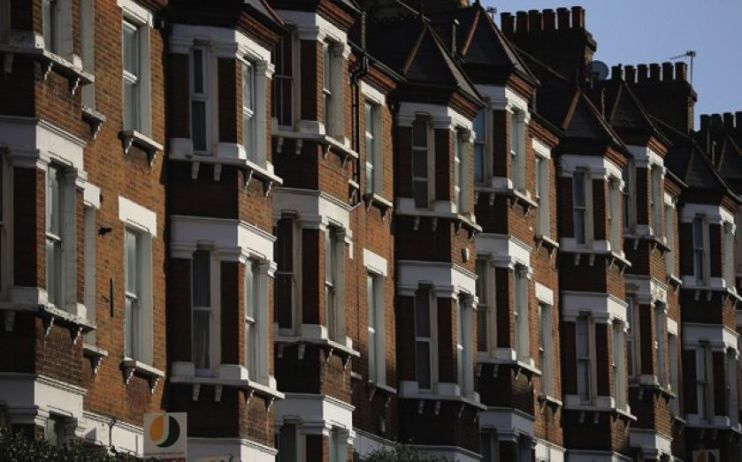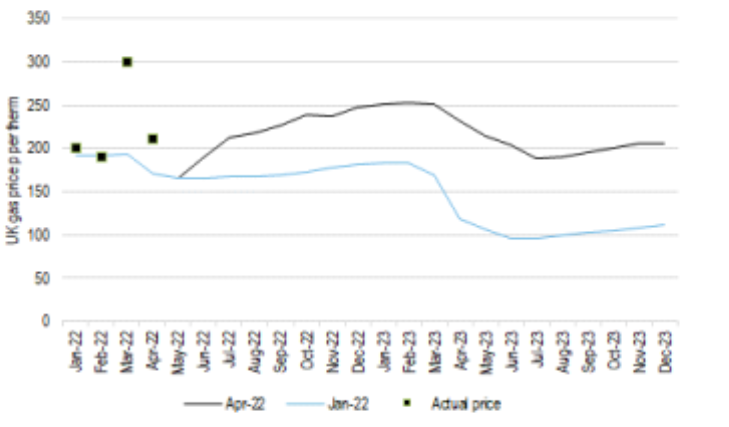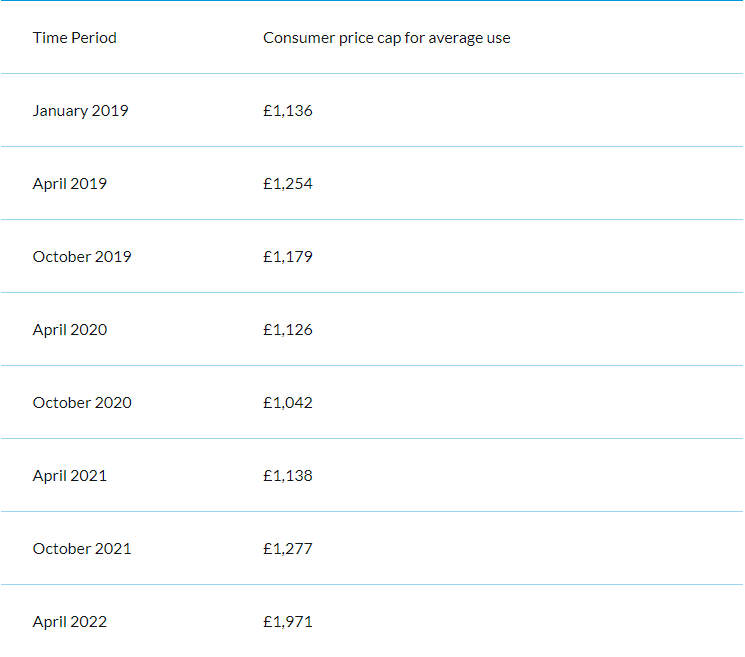High gas prices here to stay, as government faces more pressure to provide support with energy bills

High gas prices will persist for the next three years, warned investment bank Stifel, as millions of households struggle with the cost of living crisis.
Supply chain disruption and spiralling liquefied natural gas (LNG) prices will provide a lethal combination for the UK energy industry, amid global volatility, with gas prices expected toremain as high as 75 pence per therm in 2025.
While this is considerably below the £8 per therm peak recorded in March this year, it is also elevated from the 47p per therm price recorded this time last year prior to the energy crisis.
Commenting on commodity markets, Stifel analyst Chris Wheaton said: “We see energy markets remaining tighter than previously expected into 2024/2025; for oil, we increase our long-term oil price assumptions from $65 per barrel to $70 per barrel for 2024 onwards, reflecting higher longer-term risks to supply. We also now expect high UK gas prices to persist into 2025.”
Wheaton outlined the firm’s views in an investment note, ‘UK Energy and Power‘, where he explained that the UK would be unable to insulate itself from the market effects of global shortages of LNG, even with a significant domestic North Sea oil and gas industry.

With markets being global, LNG shortages would continue to plague domestic prices, even if the supplies were more crucial to European allies, with geopolitical factors being a significant “risk premium.”
He explained: “The global LNG industry has been struggling with uptime and the ability to produce the LNG its customers need – a combination of issues with maintenance on ageing fleet of liquefaction capacity, but also decline of supply of natural gas feedstock after years of under-investment.”
“Global uptime for the industry in 2021 was 68 per cent, below historical averages, and once Qatar and US production volumes are stripped out (both of which have high uptime vs global averages), the rest of the industry, about two thirds of global liquefaction capacity, was running at only 50 per cent uptime, which illustrates the problem the LNG industry has in supplying its customers.”
The European Union (EU) has committed to raising storage capacity levels to 80 per cent ahead of this winter, but terminals remain well below this figure – with the bloc under increasing pressure to pay for gas in roubles in line with Kremlin demands.
It currently relies on Russia for around 40 per cent of its gas exports.
Energy chief urges government to bring in more support
Elevated prices over the medium term make further rebate and money-saving schemes from Downing Street increasingly difficult to enable, as spreading costs for consumers depends to markets eventually easing.
Nevertheless, the latest note from Stifel comes amid warnings from Scottish Power chief executive Keith Anderson of a further rise in household bills this October to almost £3,000 per year.
This could result in household bills trebling over a 12 month window.
The consumer price cap was already hiked 54 per cent by market regulator Ofgem last month, meaning households are now paying an average of nearly £2,000 per year for their energy needs.
Anderson told The Financial Times there could be a further £900 increase to average annual energy bills, urging the government to bring in more support to tackle the crisis of soaring electricity and gas prices.
This follows his proposals to the BEIS Committee in Westminster last month for a £1,000 per year saving scheme for low-income households, paid back over time.

He has also suggested 30-40 per cent of households could end up in fuel poverty in the coming winter.
The energy boss said :“What’s about to happen to people, you cannot describe in any other way than saying it’s a crisis. All of a sudden a whole host of people who have never found themselves in debt and have never struggled to pay their bills are going to get hit by this crisis. Time is running out fast. Let’s get in a room and come up with the solutions now.”
Following the most recent rise in the price cap, Chancellor Rishi Sunak unveiled a £9bn rebate scheme and council tax savings for houses in bands A-D, which would take up to £350 per year off annual energy bills
Since Russia’s invasion of Ukraine however, gas prices have spiked again, with Downing Street under more and more pressure to bring in fresh support.
Earlier this month, Sunak told Mumsnet founder Justine Roberts in an interview itwould be “silly” for the government to provide more help to families struggling with energy bills before the price cap is updated this autumn.
He said: ” I know people are anxious about this and wondering if they are going to go up even more, and I have always been clear from the beginning we will see what happens.”